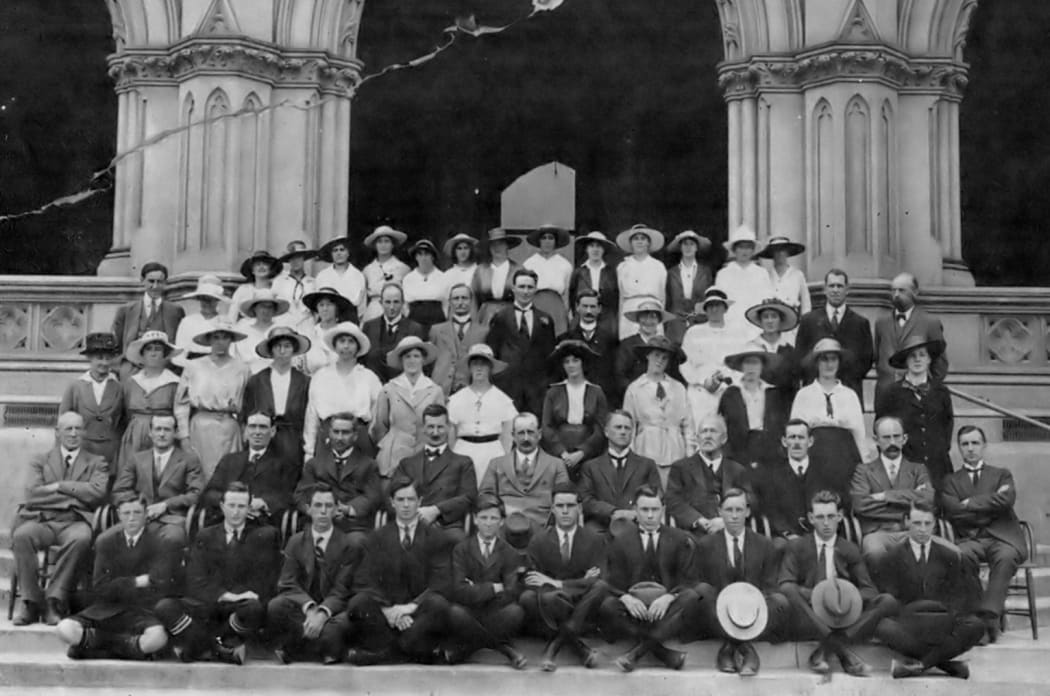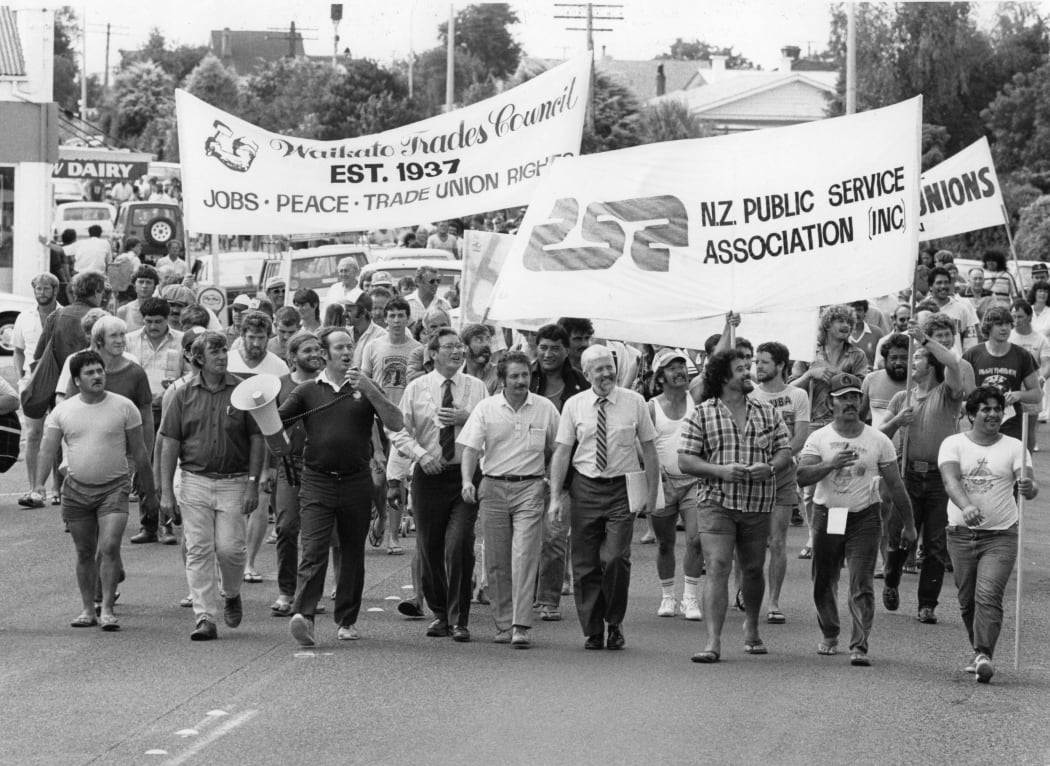
Insight Editor Philippa Tolley. Photo: RNZ
The performance of New Zealand's public service should be judged by how people feel about their dealings with it, according to its boss. But many predict the age-old institution is heading in a one direction - down. Radio New Zealand Insight editor Philippa Tolley considers the issues.

The Pensions Department in 1912, the year New Zealand Public Service was created. Photo: SUPPLIED
The Public Service Association (PSA) speaks of self-censoring and of fewer staff trying to do more with less and struggling under increased pressure and stress, Labour says the ability to offer free and frank advice has been perverted, and a former prime minister says morale is low.
All this comes amid Government plans to continue its drive to improve public services while keeping a cap on job numbers, as it aims to make the state sector more agile and productive.
State Services Commissioner Iain Rennie said the performance of the public service could be judged by how New Zealanders felt about their dealings with government employees.
"We survey New Zealanders every quarter and since we started this work in 2007 the overall satisfaction in public services has increased significantly and the general trust worthiness of the public service and trust in individual public servants has also lifted significantly," Mr Rennie said.
The need to keep up momentum for change and innovation was emphasised by State Services Minister Jonathan Coleman, who said people at the front line were seeing the opportunities created by sharing facilities, such as administrative services.
But concerns are being expressed that the democratic role of public servants is being undermined in what is regarded as one of the world's best public services.

The long-gone PSA typing pool. Photo: RNZ
In calling for a Royal Commission of Inquiry at the launch of a booklet called Rethinking the State Sector Act, former Prime Minister Sir Geoffrey Palmer said the sector needed an overhaul and that it had declined in the 24 years since he was leader.
"New Zealand has a lot of serious problems it needs to face up to in the future, and those problems are going to need the best quality governance we can possibly have, and the public service is a vital part of that," Sir Geoffrey said.
But Dr Coleman dismissed suggestions any sort of inquiry was needed.
"That's a smokescreen and a waste of time thrown up by our opponents. We're very clear about what we want from the state sector. We want better public services. They are delivering those, and it's a matter of people just getting on and taking that challenge up," he said.
However, Labour State Services spokesperson Maryan Street said the public servants' role in ensuring good governance was being undermined.
"Ministers now rule by fear. They are seriously not interested in hearing anything that challenges their view," she said.
Dr Coleman rejected that suggestion, saying ministers received free and frank advice on a regular basis from public servants.
"I think the overwhelming majority of public servants are extremely professional and focused on serving the government of the day," he said.

The days of a heavily staff public service are now over. Postal services in 1948. Photo: SUPPLIED
But former High Commissioner to London Derek Leask, who was criticised in an inquiry into the leaking of Cabinet papers over a proposed restructuring of the Ministry of Foreign Affairs and Trade, has spoken for the first time about the investigation, saying fall out from it will have a chilling effect on advice to government.
Former Commerce Commission head Paula Rebstock led the investigation and found Mr Leask and another diplomat behaved unprofessionally. The two men developed strategies to oppose the plans and to disrupt or stop the process, she said. They were also admonished for communicating directly with ministers about the restructuring, rather than going through the chief executive.
In his first interview since the report was released, the now-retired Mr Leask told Radio New Zealand's Insight programme that criticism came as a complete surprise.
"What you have is a lot of public servants who have seen a senior official giving frank views being criticised for indicating his views to the minister. Apparently no one should talk to the minister unless they echo the party line," he said.
Such a report would have a negative of effect on public service decision-making and make public servants much more careful about the way they shared their views, Mr Leask said.
But Mr Rennie said change in the public service will continue as services move online, public expectations develop and New Zealand's population becomes ever more diverse.

Anger over Changes to State Sector Bill in 1988 prompted nationwide union protests. Photo: SUPPLIED

